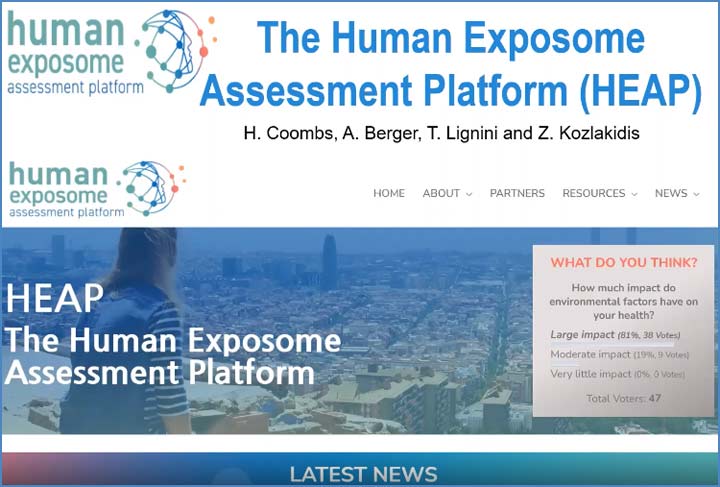Research
The research activities of LSB cover three areas: (i) the foundational needs of physical and digital medical research infrastructures, (ii) the operational needs and outputs of physical and digital medical research infrastructures, and (iii) research activities aligned with IARC’s priorities.
(i) Foundational needs of physical and digital medical research infrastructures
Modern medical research infrastructures face increasing stringent demands of quality, scalability, and compliance with health-care regulations. Physical spaces must support advanced equipment, secure storage, and collaborative work environments, while digital systems need to enable efficient data collection, analysis, and sharing. Understanding these requirements allows for the development of robust infrastructures that foster innovation and improve medical outcomes. BCNet is a prime example of this area of work, where extensive research is conducted to identify the LMIC requirements in medical research infrastructures.
Biobank and Cohort Building Network (BCNet)
- BCNet arose from the realization that despite improvements in high-income countries, population cohorts and biobanking facilities are either underdeveloped or non-existent in LMICs. In this context and in line with IARC’s mission to contribute to worldwide cancer research, BCNet was established as an opportunity for LMICs to work together in a coordinated and effective manner and jointly address the many challenges in biobanking infrastructure, including ethical, legal, and social issues. In addition, BCNet facilitates the sharing of resources (e.g. expertise and protocols) and the development of joint projects and scientific publications, strengthening the competitiveness of LMIC research infrastructures and biobanks in applying for international funding.
(ii) Operational needs and outputs of physical and digital medical research infrastructures
Researching the operational needs and outputs of physical and digital medical research infrastructures is crucial to optimize their efficiency and effectiveness. It ensures that resources, workflows, and technologies are aligned to support seamless data generation, analysis, and collaboration. An understanding of these aspects means that infrastructures can be designed to deliver accurate, timely, and impactful research outcomes while minimizing operational bottlenecks. Examples of this area of work are the ongoing biobanking and research infrastructure feasibility projects globally, as well as the recently completed EPTRI and IMCOCA projects.
- The European Paediatric Translational Research Infrastructure (EPTRI) proposed research infrastructure models focused on paediatric medicines, integrating technology-driven aspects with clinical trials. LSB participated in research concerning the ethical, legal, and social aspects of creating such a research infrastructure.
- The Impact of COVID-19 on Cancer (IMCOCA), a Projet Structurant funded by Cancéropôle Lyon Auvergne Rhône-Alpes (CLARA), (i) described the experiences of health-care providers and researchers on the adaptability of laboratory guidelines and recommendations published during the COVID-19 pandemic, and (ii) characterized the dependence of the adaptability of such guidelines on the local context.
(iii) Research activities aligned with IARC’s priorities
LSB’s research aligns strongly with IARC’s priorities on cancer research. It focuses – to mention a few selected topics – on cancer and the microbiome in children, oral potentially malignant disorders, and exposomics. The following projects provide an indication of the breadth of current activities.
- The Human Exposome Assessment Platform (HEAP), part of the European Human Exposome Network (EHEN), provides an extensive toolkit to analyse and interpret the many environmental exposures that individuals experience, and the impact that those exposures would have on their future health. The role of LSB, under the leadership of the Learning and Capacity-Building Branch, is to use the knowledge emerging from this project and transform it into educational materials, protocols, and guidelines to be made available to a global research audience.
- Following on from HEAP, LSB participates in the International Human Exposome Network (IHEN; https://humanexposome.net/). IHEN builds partly on the European Human Exposome Network (EHEN), an umbrella network of nine research projects funded by the European Union’s framework programme for research and innovation (Horizon 2020). IHEN brings together a wide variety of global stakeholders to enhance the impact of future exposome research, engaging the growing community of exposome researchers, as well as international organizations, scientific societies, governmental bodies, funding agencies, civil society groups, and industry partners.
- Interception of oral cancer development (INTERCEPTOR; https://interceptoralcancer.com/) is developing a new multidisciplinary approach to reorganize disease care management by establishing support for people affected by oral potentially malignant disorders (OPMDs), which will result in prevention of malignant transformation and eventual interception of oral cancer incidence. An innovative approach to address the prevention challenges beyond weaning programmes and antismoking/drinking advertising campaigns is foreseen.
- canSERV (https://www.canserv.eu/) is a European Union (EU)-funded project under the Horizon Europe programme that provides cutting-edge, interdisciplinary, and customized oncology services across the entire cancer continuum. The aim is to offer a comprehensive portfolio of oncology-related research services available to all scientists in EU member countries, associated countries, and beyond. The canSERV project unites a multidisciplinary consortium of 18 European partners, consisting of Research Infrastructures, key organizations in the field of oncology, and project management and sustainability experts.
- In 2019, the International Initiative for Pediatrics and Nutrition (IIPAN), at Columbia University (USA) and IARC, formalized a collaboration to lead two multinational nutrition biobanking studies. The primary aim of these studies is to establish a biobank of demographic variables, lifestyle data, nutritional anthropometrics, and nutritional biological indices from children and adolescents with acute lymphoblastic leukemia (ALL) or brain tumours (further details at https://www.pediatrics.columbia.edu/about-us/divisions/hematology-oncology-and-stem-cell-transplantation/international-initiative-pediatrics-and-nutrition-iipan/our-research).




